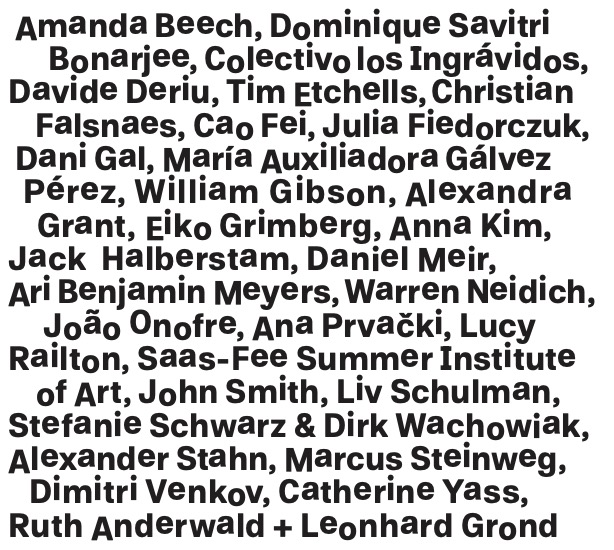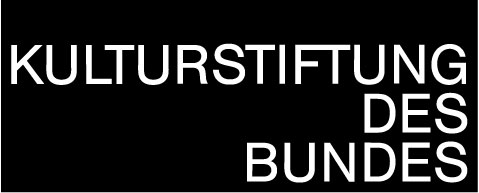



Cooperation partners in Berlin: KINDL – Centre for Contemporary Art Berlin, Videoart at Midnight, Berlin; KW Institute of Contemporary Art Berlin; Berlin Museum of Medical History Charité; Saas-Fee Summer Institute of Art.
Timeframe: The exhibition at Kindl, Center for Contemporary Art in Berlin will open on March the 22nd, 2026 and close on July the 26th.

Iliggocene - The Age of Dizziness explores states of dizziness as states of unpredictability and uncertainty through objects, installations, moving image art, lectures, performances, and conversations, regarding how they might affect the societies we are building. What modes of artistic and critical thinking, what networks and alliances, what vocabularies become relevant? The term Iliggocene (from iliggos – Ίλιγγος – Greek for “dizziness”) refers to states of dizziness as investigated through artistic research by Ruth Anderwald + Leonhard Grond & Sergio Edelsztein laid out in their podcast series On Certain Groundlessness published in 2023 (available on Spotify, Apple Podcast and here.
Iliggocene asserts thematically and artistically that the contemporary situation of polycrisis is dizzy and dizzying, demanding new vocabularies and understandings, all of which developed from and immersed in the lived experience. Dizziness is a phenomenon experienced by living bodies that is troubling their relation to their surroundings, be it on a physical, social, cognitive, emotional, environmental, or metaphorical scale. As such, dizziness is not a theoretical or curatorial concept only; but its physicality and manifestations are germane. This proposal regards dizziness as at the core of the lived experience of (loss of) relations, including time and space that can be isolating and petrifying. More here.
However, we believe that artists, with their unique set of skills, can offer a vocabulary to contribute to the challenges at hand in the Iliggocene. Even more, they offer a unique understanding of what it means to venture into unknown and uncertain territories. With this network exhibition series and the accompanying program and audio archive we aim to open a door to a different understanding of the global situation, restore critical thinking and an openness to complexity and ambiguity from which to build new modes of collaboration to mitigate living in a world in turmoil.
Avoiding falling into the superficiality of the present and biased discourse, dizziness will be addressed as the cause and the effect of the current cultural disruption and climate. The curatorial team will design a network to include partner institutions in the curation of the exhibition’s different iterations, as well as discursive formats, screenings, and performances. Following the pilot project, the Podcast On Certain Groundlessness, and with a strong belief in the significance of updating knowledge, skills, and vocabularies for the Iliggocene, the curators aim to open up the curatorial process and present a flexible, decentralised format that proposes to activate the local scene in each venue’s geographical proximity and connect them to the Iliggocene-network.
Indeed, as an approach to sustainability and the climate emergency – one of the main sources of the current loss of certainty and predictability, Iliggocene aims at reimagining institutional collaboration and the iteration of exhibitions with a minimal ecological footprint. Therefore, the proposal for institutional collaboration is not based on the transport of works and participants’ travel, but rather on activating and engaging with the wider local scene and bringing in their works and thoughts into the project, thereby enriching and widening the discussion. This does not exclude selected travel of people or work, if necessary, but it is the clear aim to reduce as much as possible. Such an approach gives emphasis on video, film, sound, and protocol works, as well as online interventions, from lectures to participatory performances. However, the knowledge transfer between the different locations and actors, as well as the inclusion of the different events in the Iliggocene network, is important. To that aim, contributions will be woven together from the beginning in the think tank and documented, edited and distributed via the audio archive.
Audio Archive: In order to make the contents of the Iliggocene - The Age of Dizziness permanently accessible to a broader public and emphasize knowledge transfer from the beginning, the curatorial team is developing an audio archive together with KINDL and involved institutions and artists. Discussions, readings, and performances will be recorded, mastered and compiled in this archive. The individual files will be summarized thematically in chapters and provided with short accompanying texts to facilitate access, introducing the complex issues of this project to a wider audience. Files will be accessible as podcast episodes on all the platforms (Spotify, Apple etc).
Participants: Ruth Anderwald + Leonhard Grond, Amanda Beech, Dominique Savitri Bonjaree, Colectivo los Ingrávidos, Davide Deriu, Tim Etchells, Christian Falsnaes, Cao Fei, Julia Fiedorczuk, DaniGal, María Auxiliadora Gálvez Pérez, Alexandra Grant, Eiko Grimberg, Jack Halberstam, Anna Kim, Dani Meir, Ari Benjamin Meyers, Warren Neidich, João Onofre, Ana Prvački, John Smith, Liv Shulman, Stefanie Schwarz & Dirk Wachowiak, Alexander Stahn, Marcus Steinweg, Dimitri Venkov, Catherine Yass.
Confirmed Faculty for SAS Fee: Nora Al-Badri, Ruth Anderwald + Leonhard Grond, Kader Attia, David W. Bates, Gregory Chatonsky, Claire Fontaine, Liz Magic Laser, Yuk Hui, Anna Longo, David Joselit
